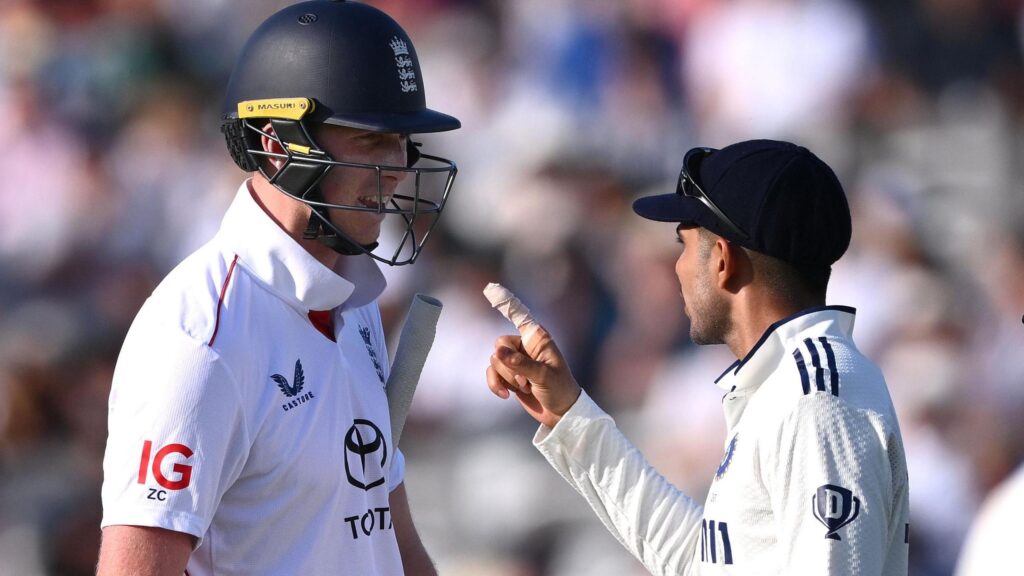In a recent match that highlighted the tensions on the cricket field, Indian captain Shubman Gill accused the England team of undermining the “spirit of cricket” by employing time-wasting tactics during the third Test at Lord’s. This was not just an isolated incident; it stemmed from several confrontations that occurred throughout the test match. Gill’s comments reflect a growing concern amongst players and fans alike regarding the integrity of the game and the behavior of athletes on the field.
The atmosphere heightened dramatically as England’s openers, Zak Crawley and Ben Duckett, faced intense scrutiny for their approach towards the end of the third day. With only one over left, tensions spilled over when Indian players, led by Gill, surrounded the England batsmen. The Indian team was clearly agitated, having taken note of Crawley and Duckett’s late arrival at the crease, reportedly by 90 seconds, which they felt was disrespectful and detrimental to the game’s ethos.
Throughout the remainder of the match, which England won by 22 runs, there were frequent clashes between the two teams. India’s Mohammed Siraj found himself on the receiving end of penalties for celebrating Duckett’s dismissal too exuberantly, while during the concluding day, England’s Brydon Carse and India’s Ravindra Jadeja had to be separated as emotions escalated. This level of interaction is not unusual in high-stakes games, but both captains’ comments underscore the ongoing debate about the limits of competitive spirit in cricket.
Ahead of the fourth Test, scheduled to take place at Old Trafford, England captain Ben Stokes acknowledged that the events on the third evening at Lord’s had energized the home side, influencing their performance in the subsequent parts of the game. However, Gill continues to express discontent over England’s timing tactics, which he deems as contrary to sportsmanship. He stressed, “If we were in that position, we would also want to play less overs, but there’s a manner to do it.” His assertion that being 90 seconds late to the crease falls outside the realm of fair play encapsulates his frustration.
Match dynamics at Lord’s were intriguing, especially as England dismissed India late in the evening. Batsman Crawley’s usage of injury timeouts and hesitation to face bowler Jasprit Bumrah drew the ire of Indian players and led to heightened emotions culminating in confrontations. Such moments, while part of the game’s competitive nature, have led to increased scrutiny from fans and commentators alike.
As Stokes prepared England for the pivotal match in Manchester, where they could secure a series victory, he addressed the confrontation issue, emphasizing that no behavior was deemed unacceptable despite the clashes. He reiterated that the banter and exchanges on the field often get blown out of proportion while expressing the passionate desire of both teams to win.
Recent revelations by batter Harry Brook regarding coach Brendon McCullum’s advice before the Lord’s Test—that the team needed to shed a ‘too nice’ demeanor—adds another layer to the dynamics. Stokes confirmed this assessment, noting the importance of passion while keeping emotions in check, indicating that they are aiming for a balance where competitiveness does not spill over into undisciplined behavior.
As the teams gear up for this crucial Test at Old Trafford, where India has historically been less successful, both captains have signaled a desire to maintain competitive integrity while showcasing the passion that cricket inspires. It remains to be seen how this balance will manifest on the field, particularly after the heated exchanges noted in the last match. Stokes’ commitment to ensuring a focused approach and not letting confrontations detract from their performance might be pivotal in the outcomes of future encounters between these cricketing giants.











